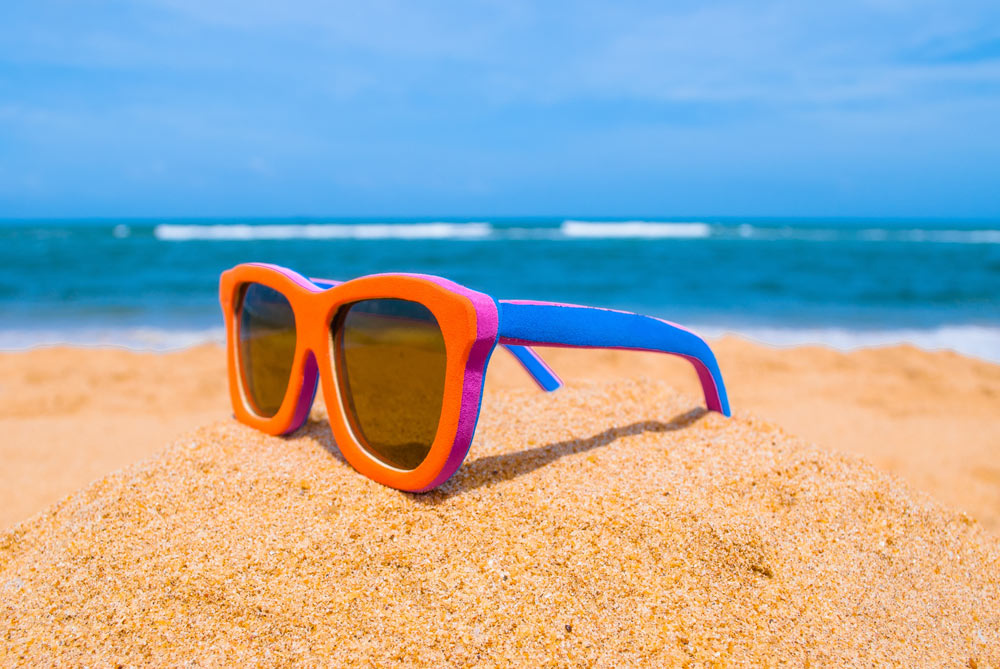
Parkville, the eco-friendly manufacturer of sustainable wooden eyewear, homeware and luxury hairbrushes, announced the launch of FlipYarn – a pioneering recycling and upcycling program that collects discarded flip flops to create a range of high-grade sunglasses and fashion accessories.
The brainchild of brothers Hugo and Lucas Kaempfer, Parkville was founded four years ago to fight the use of plastics in consumer products, particularly eyewear. Through its zero-waste factory is based in Sri Lanka it now wants to tackle the manmade flip flop waste crisis. Flip flop waste has become a major ecological problem due to the role it plays in polluting oceans and beaches, killing marine life and obstructing vital breeding grounds. Flip flops are worn by some 3 billion people around the world, they are colourful, cheap and readily available, however there are almost no recognised recycling programs set in place.
 Parkville along with leading beach clean-up and waste collection organisations such as Eco Friends SL and Rotaract District of Sri Lanka and Maldives will collect discarded flip flops before upcycling them into innovative, fun and colourful FlipYarn products. These comprise of high-grade affordable sunglasses, bracelets, necklaces and keyrings. FlipYarn is the first in the world to produce sunglasses from recycled flip flops!
Parkville along with leading beach clean-up and waste collection organisations such as Eco Friends SL and Rotaract District of Sri Lanka and Maldives will collect discarded flip flops before upcycling them into innovative, fun and colourful FlipYarn products. These comprise of high-grade affordable sunglasses, bracelets, necklaces and keyrings. FlipYarn is the first in the world to produce sunglasses from recycled flip flops!
Once collected, old flip flops are thoroughly cleaned and sanitised. They are then sanded down and the fully refreshed material is then upcycled and repurposed into accessories. All of their sunglasses are fitted with custom spring hinges for a maximum comfort fit and market leading UV 400 scratch resistant polarised lenses. Frames comes in a recycled box with a carry pouch, a microfibre cloth and a full warranty. Offcuts are then shredded for use as padding and packing materials
Adding his insight into this innovative initiative, Hugo said, “Flip flops are the most worn footwear on the planet yet there are almost no recycling programmes for this non-biodegradable waste creating a huge ecological crisis which is killing our marine life and destroying our environment. No one really thinks about what happens when they finish using their flip flops. This is why we launched our FlipYarn Kickstarter campaign on 20th August 2019 to allow us to collect and recycle as many pairs of flip flops as possible and buy additional tools and equipment for our manufacturing process as well as expand our Parkville team dedicated to FlipYarn.”

Flip flops are typically made from low cost material such as plastic, rubber and foam. To help them achieve durability, toughness as well as the colour and heat resistance for instance, various types of chemicals are added. They get discarded easily but it could take over 200 years or more for flip flops to degrade and tend to photodegrade into microplastics, which is also a global environmental issue.
Flip flops are the number one footwear in countries such as China, India, Sri Lanka and many African countries among others and many in the developing world find flip flops to be the only footwear they can afford. It has been reported that over 40% of the world’s population wear flip flops. Global sales in 2019 / 2020 are projected to top USD 18 billion with many major fashion houses having them as one of their must have accessories. The average Sri Lankan buys at least 2 pairs of flip flops per year. When it comes to the factor of discarding dilapidated or broken flip flops, there is no such recycling mechanism in doing so.
Parkville’s approach allows for a more fun and fashionable way to tackle the flip flop waste predicament and their vision for FlipYarn is firmly focused in their quest to help save our oceans from pollution every way they can and help to reduce landfill. With more discarded flip flops being directed towards upcycling initiatives such as this, lingering environmental problems of this type can no doubt be tackled to a great degree.


